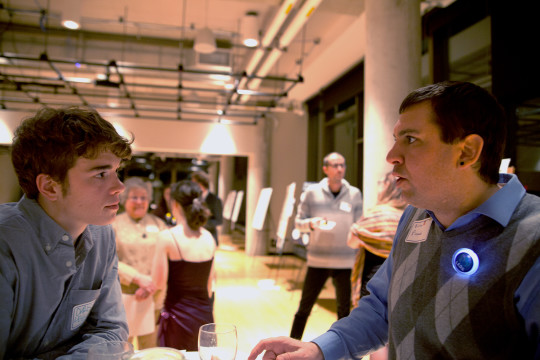Lawrentians Enhancing Diversity in Science (L.E.D.S.) is a group of faculty, staff and students working to create a community that welcomes diverse perspectives, and where open and honest dialogue is encouraged. The group had its first summit last spring and discussed difficult social situations that students might face in a science class.
Raymond H. Herzog Professor of Science and Professor of Biology Beth DeStasio and Dennis and Charlot Nelson Singleton Professor of Biological Sciences and Professor of Biology Bart DeStasio originally created this group right after hearing some students’ difficulty in forming a study group within the classroom. To address this problem, the two professors and a few students created a summit last spring term.
The summit offered a chance to suggest practical alternatives to resolve this problem. Discussing the definition of diversity and inclusivity in an educational setting, the group has helped raise awareness of social problems in and change the overall structure of science classes.
To bring more people’s attention to the program, L.E.D.S. held a “Diversity in Science” formal on Friday, Jan. 15. The program displayed “Diversity in Science” topics from various departments and groups in the form of posters, and provided information on summer and career opportunities for minorities in science. Over 100 people, comprised of both faculty members and students, showed up at the formal to encourage the activities of this group.
L.E.D.S. is planning other future activities for diversity issues. On Tuesday, Feb. 9, the group is holding a second summit called “Second Diversity in Science Summit” which will focus on allyship. It will include assigned readings to discuss the social difficulties faced by some students. This spring, the group will also have a “Conversation/Listening Group” to have informal lunch-time sessions where students can share their own experiences with social difficulties related to diversity in the sciences.
The group is also considering how other issues such as microaggressions, trigger warnings and privilege can manifest in the sciences in order to facilitate communication and community-building. While currently mainly drawing members from the biology, chemistry, geology and physics departments, the group has plans to draw more members from other departments such as anthropology and psychology.
Describing the activities of L.E.D.S., Bart DeStasio noted, “It does not have to come from administration, but from students and faculty to make these changes. We will hopefully continue to hold a regular meeting, and it would be great if many other students can also participate in this event.”

Photos by Rose Nelson

